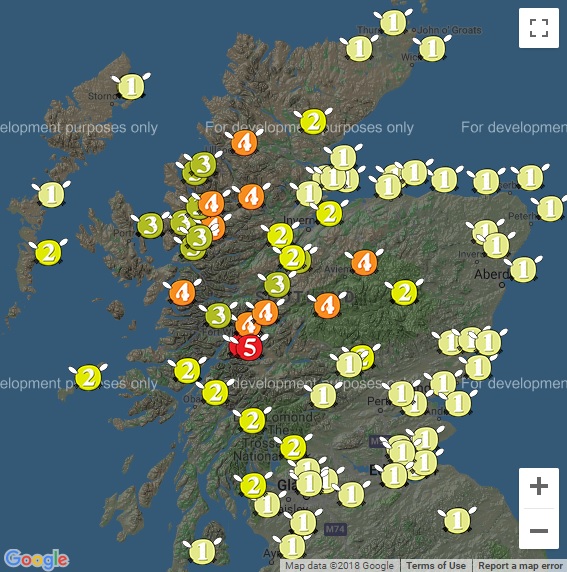RAVENOUS blood-sucking midges have emerged for a third swarm of the season in Scotland – nine months early.
Midge expert Dr Alison Blackwell today (thur) revealed that a third batch of the insatiable flies have surfaced to pester Scots once more this year.
Midges usually come out twice a year and at this point would be in the ground getting ready to hatch again next May.
But due to climate change and changes in temperature, Dr Blackwell believes a third cycle could become a regular occurrence in Scotland.
Speaking today (thur) , Dr Blackwell, of the Scottish Midge Forecast, said: “What usually happens is that we have a first swarm in mid to late May, this was set back a bit this year by the cold weather.
“Then there is a second swarm in July and August, and that is usually the last swarm of the season.
“Those little wriggly larvae then go through four stages of development and then stay in the ground right through until next year and emerge in May.
“However, we have seen the third hatch emerge which is likely due to the warm weather. I don’t expect them to hang around for long, maybe two to three weeks, before they start dropping off again. It’s not entirely unusual.”
She added: “Midges like it warm and wet – not hot and dry – and that is the kind of weather predicted with climate change. The numbers fell quickly in the hot spell, as they get dehydrated quickly.
“Some weeks the numbers were down by about 50%. But I think with the third hatch overall numbers this season will be about the same as last year.”
The third swarm is thought to have been caused by a mixture of a late start to the season which began in May this year – due to the Beast from the East – and unseasonably warm weather at the moment.

As the hot and dry weather this summer caused numbers of midges to drop – in some places by 50% – a third generation has emerged to make up the numbers.
The tiny larvae would usually borrow into the ground, go through four stages of development and later emerge next year.
The third swarm is expected to stay around for two to three weeks as the nights get colder and they begin to drop off.
The swarm will lay their own larvae, which will develop and eventually emerge in late May next year.
Last year, there was estimated to be around 139 billion midges in the Highlands and Islands.
Speaking about this years numbers, Dr Blackwell added: “It’s difficult to tell with numbers as it was a big first generation, and the hot weather dwindled the numbers of the second. However, I don’t expect the third generation to last long.
“We have just had a call from someone up in Stornoway to tell us that our smidge repellent has sold out – so they are still going strong in some places.
“At the beginning of the year it’s usually the west coast that has the most numbers, but as the year goes on the numbers get higher up in the Highlands.”
At the beginning of the season Scot’s claimed it was the “worst year ever” for midges as they arrived with a boom in June.
Lucy Fraser, from Rowardennan, Stirling, said she had become a “prisoner in her own home” and has to insist guests staying with her do not open their windows for fear of a midge siege.
